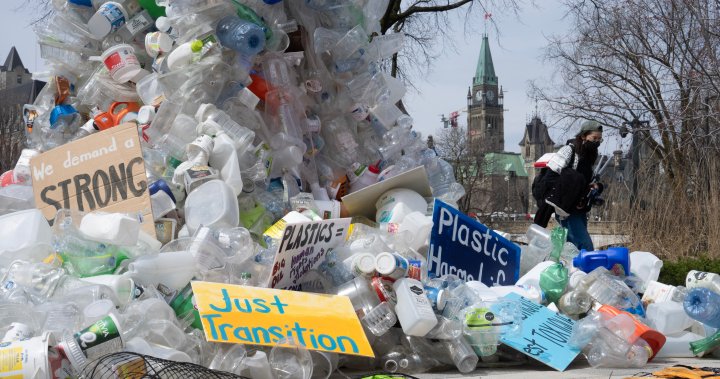Delegates and observers at the Intergovernmental Negotiating Committee on Plastic Pollution have made progress on a global treaty to end plastic pollution during talks in Ottawa. One of the contentious ideas in the treaty involves limiting how much plastic is manufactured, a proposal opposed by plastic-producing countries, companies, and oil and gas exporters. The Canadian-hosted talks concluded after the fourth round of discussions, with plans for a final set of talks to begin in November in South Korea. Preparations for the upcoming session will focus on financing the implementation of the treaty, assessing harmful chemicals in plastic products, and examining product design.
The treaty on plastic pollution aims to address the growing global issue of plastic waste that is polluting oceans, harming wildlife, and impacting human health. Limiting the production of plastic is seen as a key step in reducing the amount of waste entering the environment. However, some countries and industries are pushing back against this idea, highlighting the challenges of reaching a consensus on effective measures to tackle plastic pollution. The upcoming discussions in South Korea will be crucial in determining the final text of the treaty and deciding on specific actions to reduce plastic waste on a global scale.
In addition to limiting plastic production, the treaty will address other important aspects of plastic pollution, such as financing the implementation of the agreement. This includes determining how countries will contribute financially to support initiatives aimed at reducing plastic waste and implementing sustainable practices. Assessing the harmful chemicals found in plastic products is another critical component of the treaty, as certain chemicals can have detrimental effects on the environment and human health. By identifying and addressing these chemicals, the treaty aims to minimize their impact on the planet and protect both wildlife and human populations.
Another key focus of the upcoming talks in South Korea will be product design, as innovative and sustainable design practices can play a significant role in reducing plastic pollution. By promoting the use of recyclable materials, reducing single-use plastics, and encouraging circular economy principles, the treaty aims to shift the way products are designed and manufactured to minimize their environmental impact. This holistic approach to product design is essential in ensuring that future generations can live in a world free from the harmful effects of plastic pollution and enjoy a sustainable and healthy environment.
Overall, the progress made during the talks in Ottawa represents a significant step forward in the global effort to end plastic pollution. Despite facing challenges and opposition from some countries and industries, delegates and observers remain committed to finding common ground and developing effective strategies to address this pressing issue. The upcoming discussions in South Korea will be crucial in finalizing the details of the treaty and setting in motion a series of actions to reduce plastic waste and protect the planet for future generations. By working together and implementing innovative solutions, nations can make a positive impact in the fight against plastic pollution and create a more sustainable and eco-friendly world for all.













